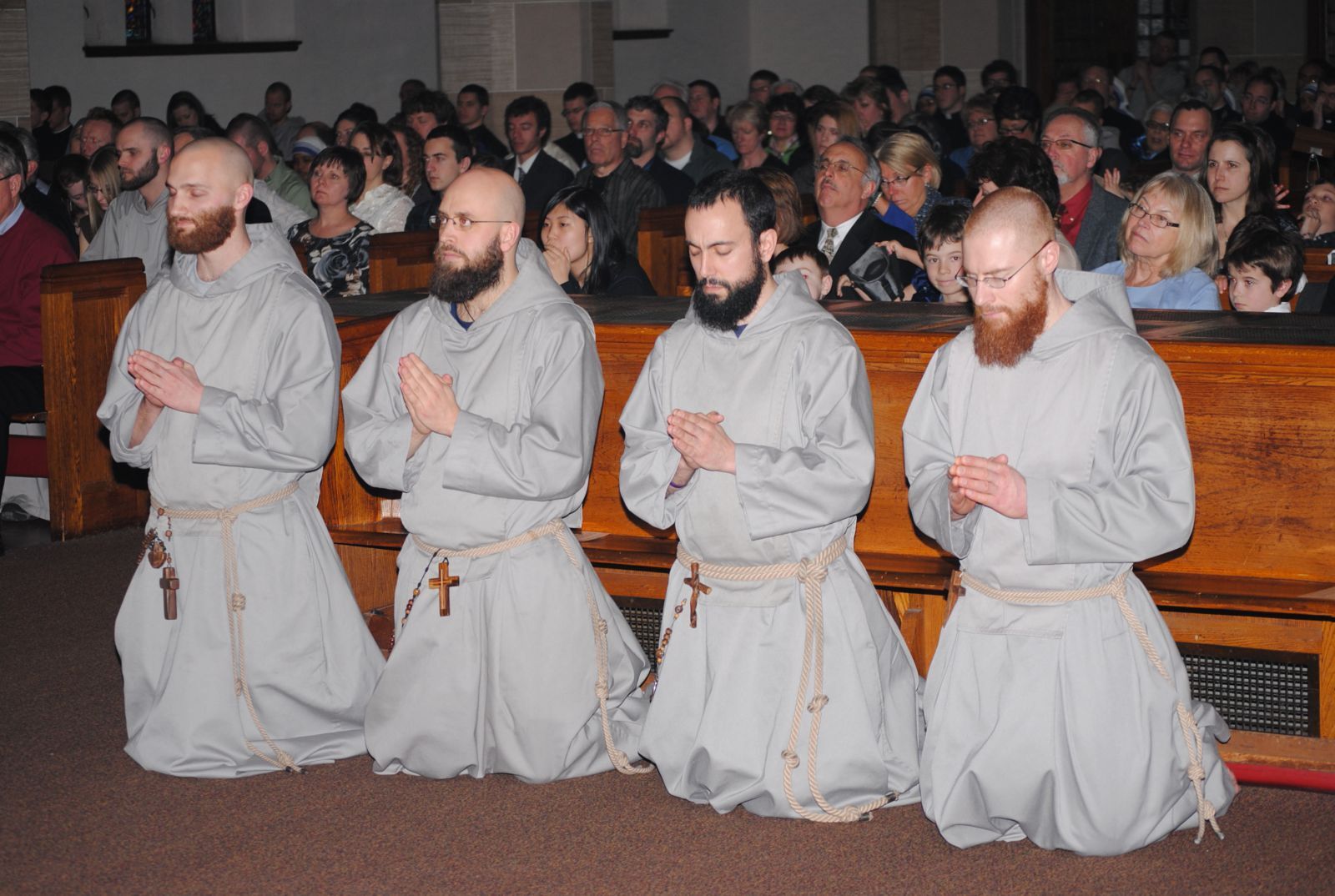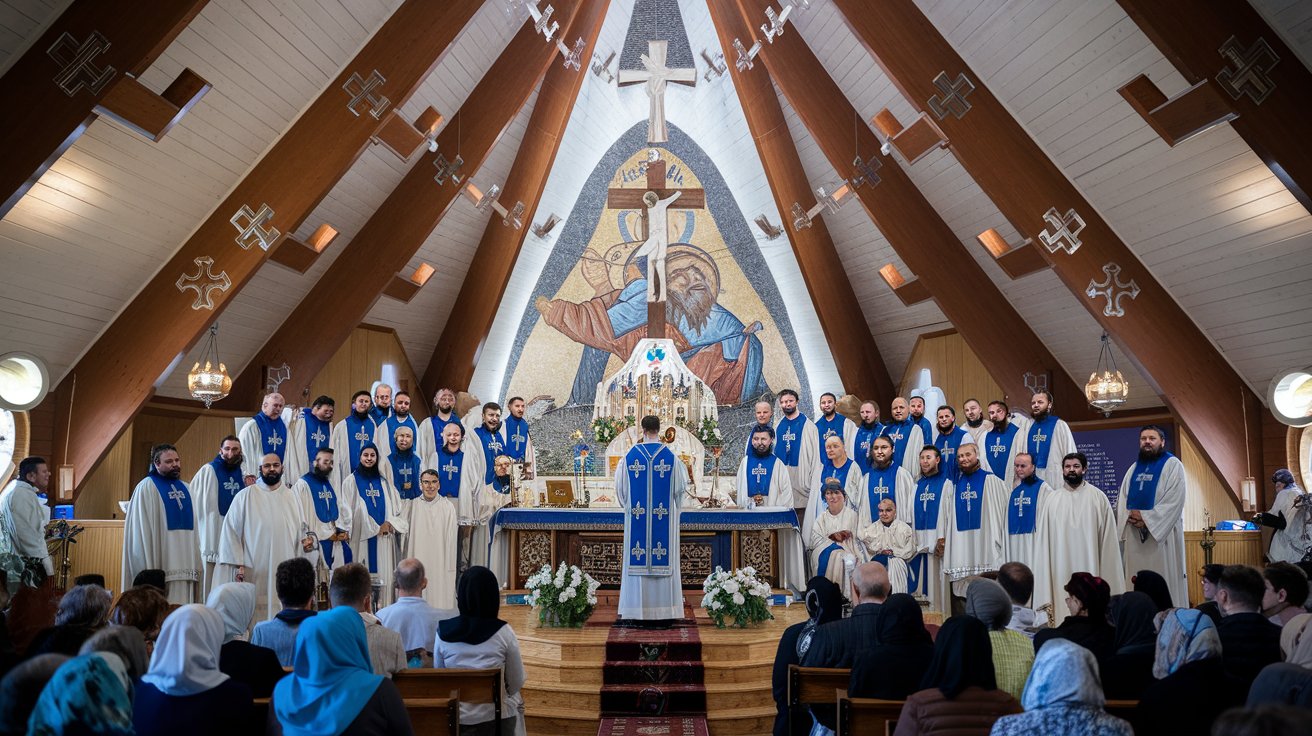
Vows are powerful promises that bind people together in meaningful ways. But what exactly makes them so special? From ancient rituals to modern weddings, vows have always held a unique place in human culture. They are more than just words; they symbolize deep commitments and shared values. Whether you're exchanging wedding vows, renewing them, or making a solemn promise in another context, these pledges carry immense emotional weight. They can be personalized, traditional, or even part of legal agreements. Understanding the history, significance, and various forms of vows can deepen your appreciation for these timeless commitments. Let's explore 40 fascinating facts about vows.
What Are Vows?
Vows are solemn promises made between individuals, often during significant life events. They hold deep emotional and moral weight, symbolizing commitment and trust.
-
Definition of a Vow: A vow is a solemn promise or oath, typically made in a formal setting, such as a wedding ceremony. It is a commitment to uphold certain principles or actions, often with the intention of creating a lasting bond between two individuals.
-
Historical Significance: The practice of making vows dates back to ancient times. In many cultures, vows were used to seal agreements, alliances, and even sacred oaths. For example, in ancient Greece and Rome, vows were made to gods and goddesses to ensure divine favor and protection.
Wedding Vows
Wedding vows are perhaps the most well-known type of vow. They are promises made by the bride and groom to each other during a wedding ceremony.
-
Wedding Vows: Wedding vows are promises made by the bride and groom to each other during a wedding ceremony. These vows are usually personalized and reflect the couple's love and commitment to one another.
-
Types of Wedding Vows: There are several types of wedding vows, including traditional, personalized, and renewal vows. Traditional vows often follow a set script, while personalized vows are tailored to the couple's unique relationship and experiences.
-
Cultural Variations: Vows vary significantly across cultures. For instance, in some African cultures, the groom must pay a bride price to the bride's family as part of the wedding vows. In other cultures, such as in some Asian traditions, the couple may exchange vows in a tea ceremony.
-
Legal Binding: While wedding vows are not legally binding in the same way as a marriage contract, they carry significant emotional and moral weight. They serve as a public declaration of the couple's commitment to one another.
Personalization and Tradition
Modern couples often choose to write their own vows, reflecting their unique experiences and relationship dynamics.
-
Personalization: One of the most significant aspects of wedding vows is their personalization. Couples often include specific details about their relationship, such as the date they first met or the moment they knew they were meant to be together.
-
Tradition vs. Modernity: Modern couples often choose to write their own vows, reflecting their unique experiences and relationship dynamics. However, traditional vows remain popular as well, providing a sense of continuity with past generations.
-
Role of Vows in Marriage: Vows play a crucial role in the institution of marriage. They symbolize the couple's commitment to one another and serve as a reminder of the promises they have made.
Vows Beyond Marriage
While wedding vows are the most well-known, vows can also be part of other significant commitments.
-
Vows in Other Commitments: While wedding vows are the most well-known, vows can also be part of other significant commitments, such as business partnerships, friendships, or even spiritual covenants.
-
Symbolic Nature: Vows are often symbolic of the deeper commitment and love between two individuals. They represent a promise to stand by one another through life's joys and challenges.
-
Public Declaration: Vows are typically made in a public setting, such as a wedding ceremony or a formal gathering. This public declaration serves as a witness to the couple's commitment and can provide a sense of accountability.
Emotional and Spiritual Significance
The emotional significance of vows cannot be overstated. They evoke strong feelings of love, loyalty, and dedication.
-
Emotional Significance: The emotional significance of vows cannot be overstated. They evoke strong feelings of love, loyalty, and dedication, making them a powerful tool for deepening relationships.
-
Revisiting Vows: Over time, couples may revisit their vows to reaffirm their commitment to one another. This can be done through renewal ceremonies or simply by reflecting on the promises they made.
-
Renewal of Vows: Renewal of vows is a ceremony where couples recommit to each other, often after a significant milestone such as an anniversary. This practice helps strengthen the bond between partners.
-
Ceremonial Significance: Vows are often integral to the ceremonial aspect of a wedding or commitment ceremony. They add a sense of ritual and tradition to the proceedings.
-
Spiritual Significance: In many cultures, vows carry spiritual significance. They are seen as a way to invoke divine blessings or to seek guidance from higher powers.
Legal and Personal Considerations
While vows themselves are not legally binding, they can influence legal proceedings in certain contexts.
-
Legal Considerations: While vows themselves are not legally binding, they can influence legal proceedings in certain contexts. For example, if a couple's vows include specific promises related to property or financial matters, these could potentially be used in court.
-
Personal Growth: Making vows can be a transformative experience for individuals. It encourages personal growth by requiring them to reflect on their values and commitments.
-
Communication: Vows promote communication between partners by encouraging them to articulate their feelings and expectations clearly. This open communication helps build trust and understanding.
Conflict Resolution and Community Involvement
When conflicts arise, couples who have made vows can draw upon these promises to resolve issues.
-
Conflict Resolution: When conflicts arise, couples who have made vows can draw upon these promises to resolve issues. The commitment expressed in the vows can serve as a reminder of their deeper bond.
-
Community Involvement: In some cultures, vows are made in the presence of community members or family. This involvement adds a sense of shared responsibility and support.
Historical and Cultural Examples
Historical examples of vows include ancient Greek and Roman oaths, medieval knightly vows, and even modern-day corporate oaths.
-
Historical Examples: Historical examples of vows include ancient Greek and Roman oaths, medieval knightly vows, and even modern-day corporate oaths.
-
Cultural Exchange: The practice of making vows has been influenced by cultural exchange throughout history. For instance, the Christian tradition of wedding vows was influenced by Jewish and Roman customs.
-
Symbolic Objects: Vows are often accompanied by symbolic objects such as rings, crowns, or other tokens that represent the commitment being made.
Language, Memory, and Education
The language used in vows can vary greatly depending on the context and cultural background of the individuals involved.
-
Language and Expression: The language used in vows can vary greatly depending on the context and cultural background of the individuals involved. Some couples choose to write their vows in a formal style, while others opt for a more casual tone.
-
Memory Keeping: Vows can serve as a way to preserve memories of special moments in a relationship. Couples often keep their vows as a memento or read them during anniversaries.
-
Educational Value: Learning about different types of vows can provide educational value by highlighting cultural diversity and historical context.
Psychological and Social Impact
Making vows can have a profound psychological impact on individuals. It requires them to confront their own values and limitations.
-
Psychological Impact: Making vows can have a profound psychological impact on individuals. It requires them to confront their own values and limitations, leading to personal growth and self-awareness.
-
Social Bonding: Vows contribute to social bonding by creating a sense of shared commitment among those involved. This bonding is particularly strong in communal settings where vows are made in front of others.
Legal Documentation and Family Involvement
While not legally binding in themselves, vows may be included in legal documentation such as prenuptial agreements or partnership contracts.
-
Legal Documentation: While not legally binding in themselves, vows may be included in legal documentation such as prenuptial agreements or partnership contracts to provide additional context.
-
Family Involvement: In some families, vows are made with the involvement of children or other family members. This inclusion adds an extra layer of responsibility and support.
Spiritual Practices and Community Rituals
Vows are often integrated into spiritual practices such as prayer or meditation. They serve as a way to connect with higher powers and seek guidance.
-
Spiritual Practices: Vows are often integrated into spiritual practices such as prayer or meditation. They serve as a way to connect with higher powers and seek guidance.
-
Community Rituals: Vows can be part of community rituals that bring people together around shared values and commitments. These rituals strengthen social bonds within communities.
Historical Evolution and Personal Reflection
The evolution of vows reflects broader societal changes over time.
-
Historical Evolution: The evolution of vows reflects broader societal changes over time. For example, modern-day corporate oaths reflect changes in business practices and ethical standards.
-
Personal Reflection: Making vows encourages personal reflection on one's own values and commitments. This reflection helps individuals clarify their goals and priorities.
Emotional Expression and Accountability
Vows provide an opportunity for emotional expression, allowing individuals to articulate their deepest feelings and desires in a meaningful way.
-
Emotional Expression: Vows provide an opportunity for emotional expression, allowing individuals to articulate their deepest feelings and desires in a meaningful way.
-
Accountability: The act of making vows can create a sense of accountability among those involved. This accountability helps maintain the integrity of the commitment being made.
Symbolic Representation and Enduring Legacy
Vows are often symbolic representations of deeper commitments and values.
-
Symbolic Representation: Vows are often symbolic representations of deeper commitments and values. They serve as reminders of the promises made and the bond shared between individuals.
-
Enduring Legacy: Ultimately, vows leave an enduring legacy that transcends time and circumstance. They represent a lasting commitment that can inspire future generations.
The Enduring Power of Vows
Vows are more than just words; they're promises that shape relationships, cultures, and personal growth. From ancient rituals to modern weddings, these commitments hold emotional, moral, and sometimes legal weight. They symbolize love, loyalty, and dedication, often made in public to add a layer of accountability. Whether traditional or personalized, vows reflect the unique bond between individuals and can be revisited to strengthen that connection over time. They promote communication, resolve conflicts, and involve community support, making them a cornerstone of social bonding. Vows also carry spiritual significance, invoking blessings and guidance from higher powers. Their enduring legacy transcends time, leaving a lasting impact on those who make and witness them. Understanding the complexities and nuances of vows helps us appreciate their profound influence on our lives and relationships.
Was this page helpful?
Our commitment to delivering trustworthy and engaging content is at the heart of what we do. Each fact on our site is contributed by real users like you, bringing a wealth of diverse insights and information. To ensure the highest standards of accuracy and reliability, our dedicated editors meticulously review each submission. This process guarantees that the facts we share are not only fascinating but also credible. Trust in our commitment to quality and authenticity as you explore and learn with us.


